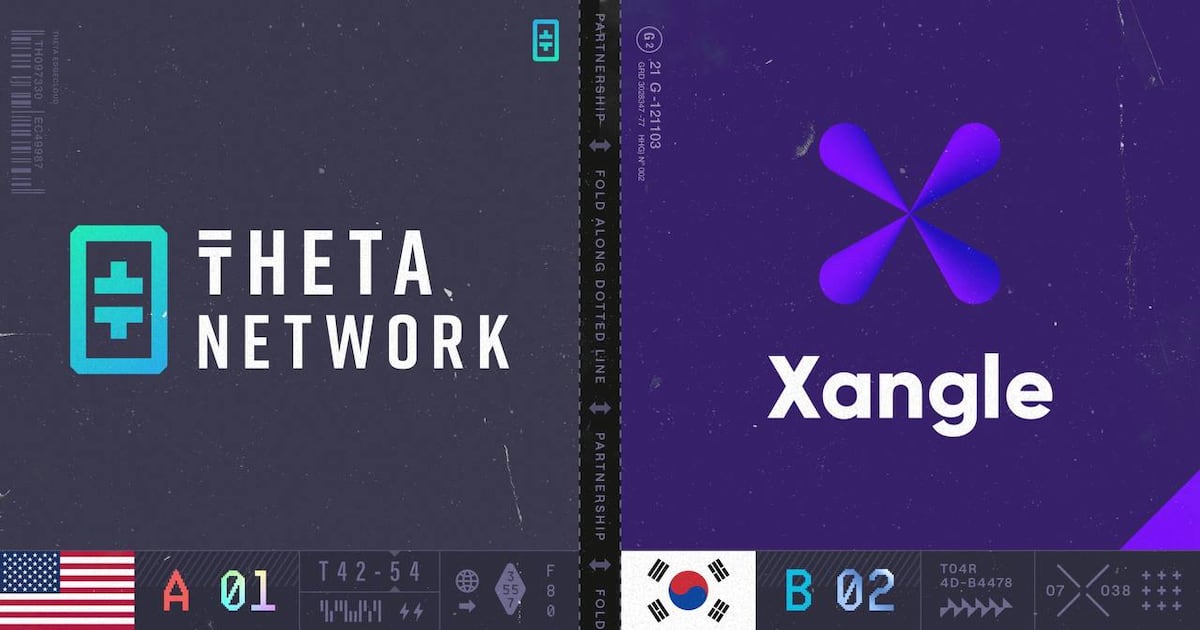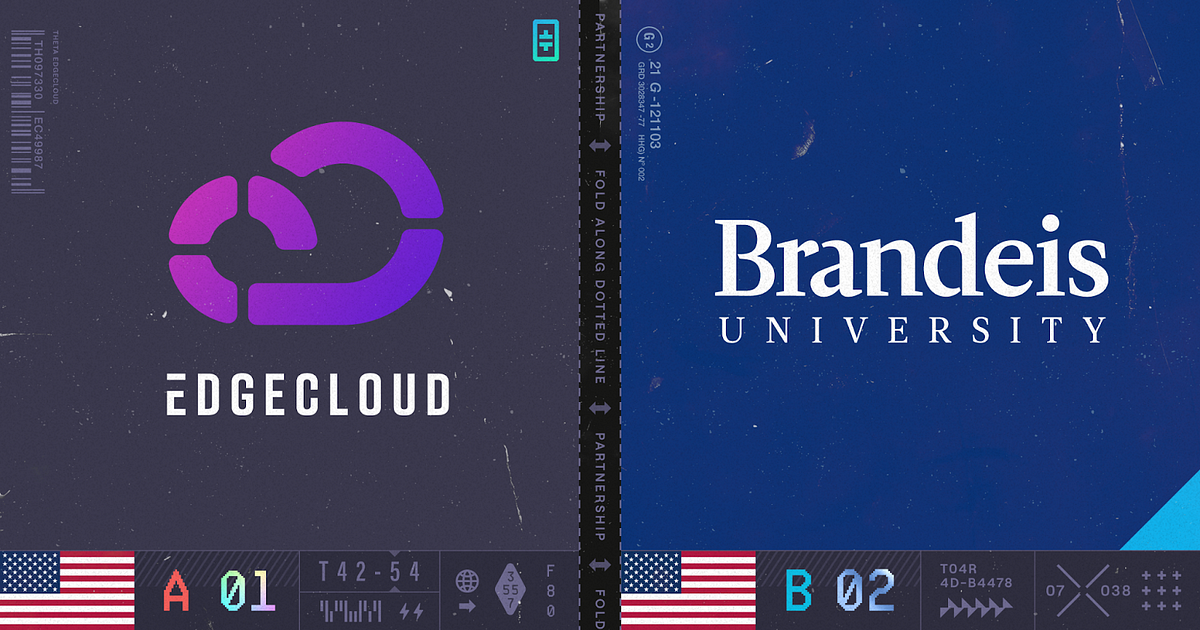Aethir Makes Significant Strides in Decentralized Infrastructure and AI
Sunday, June 2, 2024 12:10 PM
134
Aethir is advancing in decentralized physical infrastructure with AI and machine learning, announcing a partnership with GAM3S.GG for enhanced gaming experience. Aethir Edge has distributed over 66,000 Checker Nodes, utilizing idle GPU power for earning $ATH tokens. The company aims to address the global GPU scarcity by aggregating and redistributing resources, potentially increasing global GPU compute availability. Aethir also hosted the ‘AI Dinner Salon’ at Consensus 2024, discussing decentralized AI’s future.
Buy Now at
Related News

2 days ago
IPFS Revolutionizes Data Transmission in Space with Filecoin and Lockheed MartinThe Interplanetary File System (IPFS) has made significant strides in reducing latency for data transmissions in space, as demonstrated by a successful collaboration between the Filecoin Foundation and Lockheed Martin Space. During the Consensus 2025 conference in Toronto, Marta Belcher, president of the Filecoin Foundation, revealed that they have successfully transmitted data using a version of IPFS on a satellite orbiting Earth. This adaptation enhances privacy and security by identifying data based on its content rather than its location, which is particularly beneficial for space communications. The architecture of IPFS is designed to mitigate delays, address data corruption from radiation, and enable cryptographic verification to ensure data integrity.
Belcher highlighted the challenges of data transmission from celestial bodies, noting the multi-second delay from the Moon and multi-minute delay from Mars. The IPFS system allows users to retrieve data based on a content ID from the nearest source, whether it be a personal device, a nearby satellite, or a lunar station. This decentralized approach reduces reliance on centralized data centers and improves the reliability of data storage in environments where hardware may degrade, which is crucial for maintaining the integrity of sensitive materials like satellite images.
The growing interest in decentralized archival storage among media companies and potential military applications of this technology indicate a promising future for IPFS. Belcher emphasized the power of having a deep archive accessible globally, which could revolutionize how media and military organizations manage their data. Additionally, the FIL token, a utility token within the Filecoin ecosystem, boasts a market capitalization of approximately $1.8 billion, reflecting the increasing relevance of decentralized storage solutions in today's digital landscape.

3 days ago
Amp and Aethir Shine Amidst Crypto Market CoolingIn a cooling crypto market, Amp (AMP) and Aethir (ATH) have emerged as standout performers, each experiencing a notable 16% increase in value. Amp is currently valued at $0.0051, buoyed by strong bullish momentum supported by key Exponential Moving Averages (EMAs) and favorable trading signals from indicators like MACD and RSI, despite warnings of overbought conditions. Meanwhile, Aethir, which focuses on AI-driven blockchain solutions, has surged to $0.052, breaking past significant resistance levels and maintaining bullish optimism, although the overbought RSI suggests that traders should remain vigilant.
The divergence in the crypto market is evident as Helium (HNT) faces downward pressure, trading at $4.00 and struggling below the critical 200-day EMA. This situation poses a risk of further declines if it breaches the 100-day EMA support at $3.83. The contrasting trajectories of Amp and Aethir against Helium highlight the persistent volatility and innovation within the digital asset market, prompting traders to balance ambition with risk management strategies.
As traders navigate these turbulent waters, the resilience of Amp and Aethir underscores the potential for growth even amid market stagnation. Investors are encouraged to monitor key technical indicators closely, particularly EMAs and RSI levels, to identify optimal entry points and manage risks effectively. The ongoing developments in these projects reflect the dynamic nature of the cryptocurrency landscape, where innovation continues to drive interest and investment opportunities.

4 days ago
Solana's Recovery and the Rise of AI-Driven Projects Bittensor and UnilabsSolana (SOL) has shown a remarkable recovery, bouncing back 90% from its lowest point this year, yet it remains constrained below the critical resistance level of $180. Analysts are optimistic, suggesting that the Solana price could be on the verge of a significant breakout, particularly as many SOL meme coins have recently surged. The current market sentiment is buoyed by strong fundamentals and an upward trajectory, with SOL hovering around the $170 mark. A decisive move above the $180 resistance could pave the way for a potential rise towards $200 and beyond, possibly reaching levels around $250.
In the midst of this, Bittensor (TAO) has emerged as a notable player, maintaining a steady performance while other cryptocurrencies, including Bitcoin (BTC), have struggled. The interest in Bittensor is largely driven by its innovative approach to decentralized AI, which has gained traction following high-profile events, such as Donald Trump's attendance at a crypto and AI innovators dinner. Currently trading around $457, Bittensor has demonstrated resilience, holding onto gains and reflecting a growing market confidence in projects that integrate blockchain technology with AI.
Meanwhile, Unilabs (UNIL) is gaining momentum as a compelling alternative for investors looking to diversify from traditional layer-1 networks like Solana. With a focus on merging blockchain transparency with AI infrastructure, Unilabs is positioning itself as a leader in the DeFi and AI space. Its innovative model, which includes a token-based incentive system, aims to attract users and developers alike. As Solana's growth stalls, Unilabs presents a unique opportunity for traders, potentially redefining the standards for DeFi AI platforms in a rapidly evolving crypto landscape.

8 days ago
Comparing Web3 Cloud Solutions: Phala Cloud, Akash Network, and FleekIn the rapidly evolving landscape of Web3 cloud solutions, selecting the right platform is crucial for the success of your project. This article compares three notable options: Phala Cloud, Akash Network, and Fleek, each catering to different needs. Phala Cloud focuses on privacy-preserving computation with TEE-backed GPU enclaves, making it ideal for secure AI applications. Akash Network offers a decentralized compute marketplace, perfect for machine learning training and scalable backends. Meanwhile, Fleek specializes in edge and static hosting, providing a user-friendly experience for deploying frontend applications. Understanding these platforms' strengths can guide developers in making informed decisions based on their unique requirements.
The architecture and core features of these platforms highlight their distinct technical foundations. Phala Cloud utilizes peer-to-peer enclaves for execution, ensuring a high level of confidentiality with on-chain attestation. Akash Network operates through a container marketplace orchestrated by Kubernetes, allowing for flexible resource allocation. Fleek, on the other hand, focuses on edge hosting and static site deployment, offering minimal backend trust features. Each platform has its own key management approach, with Phala emphasizing self-custodied keys, while Akash relies on provider-managed key stores. These differences are essential for developers to consider when aligning their project needs with the right cloud solution.
Finally, the cost models and tooling available on each platform further differentiate them. Phala Cloud operates on a prepaid credit system, providing predictable pricing for users. Akash Network's spot bidding model introduces volatility but can lead to significant savings for compute-intensive tasks. Fleek offers a free tier, making it accessible for small-scale projects. Developers should also consider the tooling and integrations each platform provides, as these can impact the ease of deployment and ongoing management. By leveraging the strengths of Phala, Akash, and Fleek, developers can create resilient and efficient Web3 applications tailored to their specific needs.

9 days ago
Xangle Joins Theta Network as Enterprise Validator, Enhancing Blockchain InfrastructureOn the 9th, blockchain infrastructure corporation Xangle announced its entry into the global blockchain mainnet Theta Network as an enterprise validator. Theta Network is renowned for providing decentralized cloud infrastructure tailored for sectors such as artificial intelligence (AI), media, sports, and entertainment. It boasts a robust framework supported by over 30,000 distributed edge nodes worldwide, ensuring efficient operation and governance. The network has garnered strategic investments from notable entities including Samsung Next, Sony Innovation Fund, Bertelsmann Digital Media Investments, and Creative Artists Agency (CAA), with global giants like Google, Samsung, and Binance also participating as enterprise validators.
As part of its commitment to the Theta ecosystem, Xangle will stake a total of 200,000 Theta (THETA) tokens, significantly enhancing network security and governance as a validator node. The company aims to actively contribute to the expansion of the decentralized physical infrastructure network (DePIN) and the AI ecosystem that Theta promotes. Founded in 2018, Xangle has established itself as a leading web3 infrastructure service provider and research platform in Korea, offering community hubs, blockchain explorers, and comprehensive web3 industry analysis reports. It has also served as a validator for various global projects, including Aptos, Babylon, 0G, and Initia.
Lee Hyun-woo, co-CEO of Xangle, expressed enthusiasm about the partnership, stating, "We are very pleased to be listed as an enterprise validator alongside Google, Samsung, and CAA through our strategic partnership with Theta." He emphasized that staking in Theta's validator network aligns perfectly with Xangle's mission to enhance trust, decentralization, and transparency in layer 1 blockchains. Mitch Liu, co-founder and CEO of Theta Network, echoed this sentiment, highlighting Xangle's strengths in blockchain analysis and ecosystem development, and anticipating significant synergies in promoting Theta (THETA) and Theta Fuel (TFUEL), along with enhancing the overall security and scalability of the Theta blockchain.

13 days ago
Theta Network Partners with Brandeis University to Enhance AI ResearchTheta Network has announced a significant partnership with the Liu Lab at Brandeis University, led by Professor Hongfu Liu, to utilize Theta EdgeCloud for enhancing machine learning (ML) and artificial intelligence (AI) research. This collaboration marks a pivotal moment for Theta as it solidifies its position as a leader in decentralized GPU infrastructure for academic research. The Liu Lab joins a prestigious list of institutions, including Stanford University and Seoul National University, that are leveraging EdgeCloud’s hybrid GPU capabilities to boost productivity in AI research. By integrating these decentralized resources, the lab can access scalable and high-performance computing power, which is crucial for advancing their research initiatives in data-centric learning and clustering analysis.
Professor Liu emphasized the benefits of this integration, stating that the flexibility and cost-effectiveness of Theta EdgeCloud allow their team to focus on innovative research projects without the burden of managing extensive computational resources. The lab's research primarily revolves around data-centric learning, which prioritizes the quality and diversity of training data over mere algorithm refinement. This approach is essential for developing reliable and fair machine learning models, as it ensures that the datasets used are well-annotated and representative of real-world scenarios. The Liu Lab's ongoing studies in this domain include various applications such as noisy label correction and active learning, showcasing the breadth of their research capabilities.
Theta EdgeCloud’s decentralized infrastructure not only empowers the Liu Lab but also supports a wider academic community by providing on-demand, high-performance computing resources. This initiative allows researchers to dynamically allocate resources, optimizing both performance and cost for large-scale projects. As Theta Network continues to partner with leading institutions, it aims to facilitate groundbreaking research in AI and machine learning, ensuring that researchers can focus on their work without the constraints of traditional computing limitations. This collaboration represents a significant step forward in making advanced AI research more accessible and efficient for academic institutions worldwide.
Signup for latest DePIN news and updates